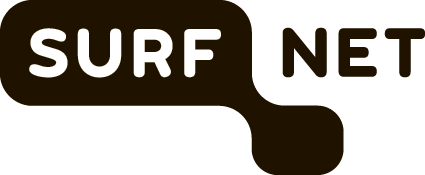

|
Don't Blow IT
27 September 2001

Don't Blow IT is een interessante eendaagse conferentie, mede georganiseerd door de Internet Society of England die
plaatsvindt op donderdag 27 september 2001 in het Bloomberg Auditorium in Londen. Er zal onder meer gesproken wordne
over veranderingen in de economie door de komst van internet, cyberrechten vs. burgerrechten en de balans tussen technofilie en technofobie.
Sprekers zijn onder meer de auteurs Phil Mullan, Charles Leadbetter en Jeffrey Rosen, naast mensen uit het veld als Caspar Bowden
(directeur Foundation for Information Policy Research) en John Fitzpatrick (directeur Kent Law Clinic/University of Kent).
De bijeenkomst is gratis toegankelijk voor leden van ISOC Nederland, vooraf aanmelden via ISOC Engeland is noodzakelijk.
Aanmelden via ISOC Engeland
Lokatie:
City Gate House
Finsbury Square
London EC2A 1PQ
Dichtstbijzijnde metrostation is Moorgate.
Routebeschrijving per auto.
Programma
|
| 9am:
|
|
Registration and coffee
|
| 9.30am:
|
|
Technophilia, technophobia - and beyond
|
|
|
|
Helene Guldberg, managing editor of spiked, introduces the day.
|
| 9.40am:
|
|
Beyond the internet bubble
Speaker: Phil Mullan, - chief executive, Cybercafé Ltd; author, The Imaginary Timebomb: Why an Ageing Population is not a Social Problem
|
|
|
|
The 'internet economy' was once the Next Big Thing, but now it looks like a burst bubble. Stock markets are down, and all those who hailed the potential of IT to change how we live and work seem to have been proved wrong. But was there really anything new about the internet economy? What impact did it have on business? And what does the current downturn mean for the future impact of IT upon society?
Read on:
Demystifying IT by Phil Mullan
Taking stock of technology by Daniel Ben-Ami
From dotcom boom to dotgloom by Phil Mullan
|
| 10.55am
|
|
break
|
| 11.20am
|
|
Knowledge in the information age
Speakers: Charles Leadbetter - author, Living on Thin Air: The New Economy; associate, Demos, Dr Frank Furedi - reader in sociology, University of Kent at Canterbury; author Culture of Fear: Risk-Taking and the Morality of Low Expectation
|
|
|
|
The internet and the economic changes brought about by IT are said to have created a new role for knowledge in an innovation-driven information society, with the 'knowledge entrepreneur' playing a key role. Why has 'knowledge' become a keyword in business and policy? And are we really living in a 'knowledge economy'? Is there any room for real knowledge in the so-called 'information age'?
|
|
|
|
Read on:
Facilitators or Educators: what are teachers for? by Frank Furedi, Institute of Ideas, 29 May 2001
Towards the knowledge society by Charles Leadbeater, New Statesman, 12 July 1999
Timid economics by Ben Hunt
|
| 12.35pm
|
|
break
|
| 1.35pm
|
|
The destruction of privacy: an American perspective
|
|
|
|
Speaker: Professor Jeffrey Rosen - author, The Unwanted Gaze: The Destruction of Privacy in America; legal affairs editor, The New Republic
As thinking and writing increasingly take place via the internet, intimate parts of our lives can be monitored more closely. Just browsing the web can leave electronic footprints that reveal our tastes, preferences and thoughts. American legal commentator Jeffrey Rosen will explore the legal, technological and cultural changes that challenge our ability to control how much personal information is communicated to others.
Read on:
Taming the beast by Jeffrey Rosen, The New Republic, 12 September 2000
Privacy online: what's the problem?, by Norman Lewis
Whose data is it anyway? by Andrew Cox
|
| 2.50pm
|
|
break
|
| 3.15pm
|
|
Privacy, freedom and IT
|
|
|
|
Speakers: Caspar Bowden - director, Foundation for Information Policy Research, John Fitzpatrick - director, Kent Law Clinic; senior lecturer in law, University of Kent at Canterbury
The free spirit that the internet was supposed to embody is in danger of being suffocated by incursions upon our privacy and right to free expression. But while corporate initiatives like Microsoft 's Hailstorm project cause a stir over privacy, something like the UK 's Regulation of Investigatory Powers Act -which grants the authorities unprecedented powers to monitor electronic communications -is met with near-silence. This session examines the impact that IT is having on our liberties, and puts the case for freedom -on- and offline.
Read on:
spiked-seminars: Privacy from whom?
Storm over Hailstorm by Jason Burton
Net anonymity: free speech or cheap words? by Dave Amis
|
| 4.30pm
|
|
close
|
Naar overzichtsagenda
|
|

